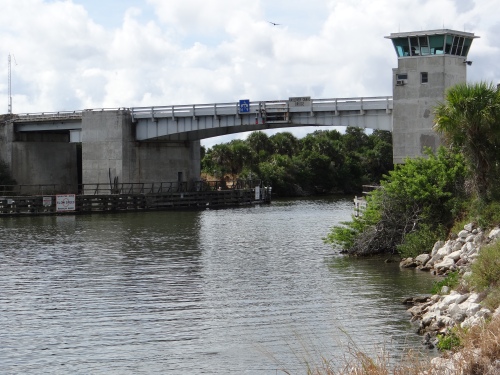NASA Deals Florida a Setback in Bid to Secure a Commercial Site for SpaceX
A report in Florida Today indicates that the State of Florida’s plan to secure a long-term commercial spaceport independent from NASA’s Kennedy Space Center and the U.S. Air Force Eastern Test Range have been dealt a potentially serious blow. In a letter addressed to Florida Lieutenant Governor Jennifer Carrol, NASA rebuffed Florida’s request to transfer former state land, purchased by NASA in the heyday of the space race, back to the state for development by Space Florida. The land, which is located near the ghost town of Shiloh, Florida on St. Route 3 lies just north of KSC on Brevard, Volusia country line, directly west of Mosquito lagoon.
In the letter, NASA left open the possibility of arrangements “other than full conveyance,” stating that the land was not listed as excess property and might serve “future mission requirements.” Considering the agency’s well publicised efforts to find new occupants for much more prominent features such as the Vertical Assembly Building and Shuttle Landing Facility, the decision could become a controversial one, in the event an alternate solution is not forthcoming.
Although Space Florida anticipates possible multiple users, the key goal is clearly to secure a suitable location for SpaceX, which would like to build a commercial launch facility which could operate unhindered by the schedule and range restrictions of operating on an Air Force base which has other priorities and multiple residents. SpaceX is also considering other potential locations, including Georgia and Texas, the latter of which is actively pursuing the opportunity and considered to be a leading contender. As such, difficulties in securing the Shiloh site could effectively derail Florida’s chances and push the Lone Star State into the lead.
There are some interesting potential long-term consequences. Although its launch rate has been limited thus far, 2013 marks the beginning of a gradual period of acceleration in activity which will see the company become a major player on the international commercial launch market. Assuming a successful introduction of the Falcon 9 v1.1 later this year, and the Falcon Heavy after that, wherever SpaceX ultimately chooses as its commercial launch site is likely to become an increasingly visible center of space commerce, and ultimately even the de-facto home of the U.S. space launch industry. (though not its manufacturing base) If the site is in Florida, adjacent to KSC, then Cape Canaveral will retain its place in the American psyche as among the most special of places.
On the other hand, if SpaceX continues to build on its progress, and ultimately launches most of its missions out of another location, then the Cape will assume a different, and definitely subdued role. While ULA , which due to high costs of the EELV program has a minimal commercial presence, and for the moment at least, little prospect of gaining any, will continue to launch both NASA and DOD missions out of the area, the flight rate overall flight rate could be a diminishing one. Furthermore, taking current plans at face value, which could include a possible termination of the ISS program as soon as 2020, then the manifest of crewed flights aboard the Boeing CST-100, and SpaceX Dragon, all of which would take place from the Cape, could be disappointingly brief.
With NASA, at the behest of the Senate, being compelled to develop the SLS, a rocket so expensive that it can only be flown every other year at best, after a likely flurry of activity in the last half of this decade, the next decade at KSC could be dominated by the sounds of silence. There is one more possibility to consider, even if it appears remote at the moment. Proposed privately funded space ventures such as the Bigelow space station and Golden Spike have received a great deal of press in recent weeks, and may just be on the forefront of a new wave of ventures made possible by reduced launch costs, driven by SpaceX. At the same time, torrents of data coming back from Mars indicate that is clearly a more hospitable environment than many recently believed. If NASA continues dithering along its “flexible path” to Mars, one which appears to meander through the first half of this century before ever seriously addressing the subject, then the incentive to mount a fully private mission to the Red Planet will become ever stronger, and more achievable. There is absolutely no guarantee if it were to come to pass, that such a mission, or perhaps even more importantly, all the ones to follow, would launch out of Florida, and the home of America’s pioneering efforts in space exploration.
A string of caveats to be sure, but for residents of both the Space Coast, as well as potential competing sites, there is a great deal at stake, and NASA may have just dealt Florida a busted flush.



1 Comment on "NASA Deals Florida a Setback in Bid to Secure a Commercial Site for SpaceX"
Trackback | Comments RSS Feed
Inbound Links